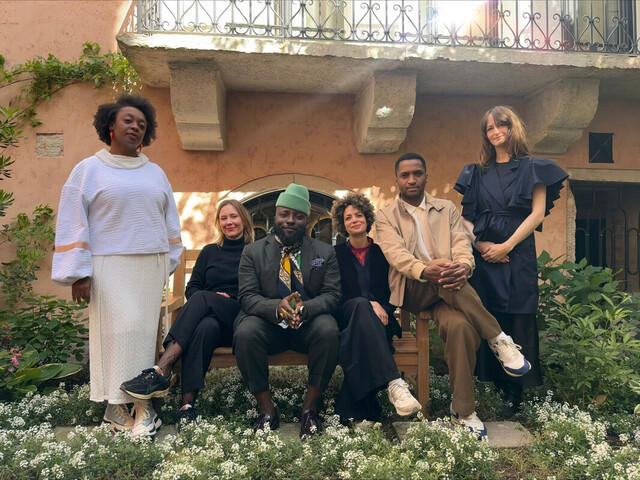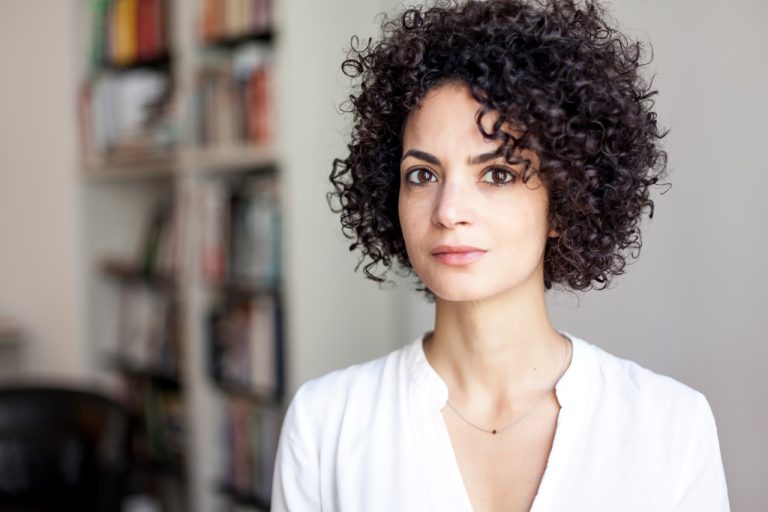São Paulo – Born in Casablanca, Morocco, the director of the ifa-Galerie Berlin in Germany, Alya Sebti, is one of the curators of the 36th São Paulo Biennial , which is scheduled for September 2025 in its pavilion at the Ibirapuera Park. In an interview with ANBA, Sebti says she has visited Brazil for 20 years and feels similarities between São Paulo and Casablanca.

“I came to Brazil 20 years ago for the first time. And I keep coming back whenever I can. There is a very special connection for me, as a Moroccan-born raised in Casablanca, with São Paulo. I can’t really explain why, but it somehow feels like home away from home.”
“The scale is obviously different but I feel so many resonances between these two cities, the energy, rhythm, light,” says Sebti, who has lived in Berlin since 2014.
The biennial’s chief curator will be Cameroon’s Bonaventure Soh Bejeng Ndikung, who assembled a conceptual team as his cocurators. Besides Alya Sebti, the team consists of Switzerland’s Anna Roberta Goetz and Brazil’s Thiago de Paula Souza and Keyna Eleison. Germany’s Henriette Gallus will oversee communication and strategy. Other members of the team, the curatorial proposal and other partners will be announced over the course of this year.
São Paulo Biennial, a space of shared knowledge
The non-commercial art space ifa-Galerie Berlin she has directed since 2016 belongs to the ifa – Institut für Auslandsbeziehungen [Institute for Foreign Cultural Relations].
She developed there, starting 2017, the Untie to tie – on colonial legacies and contemporary societies, a research and exhibition project that discusses the colonial legacies, movement, migration and environment.
The biennial format, Sebti says, is very important in her praxis, as she worked with several biennial in her past – the Marrakech Biennale in Morocco in 2014, the Dakar Biennale in Senegal in 2018, the Manifesta Biennial edition in Marseille, France, in 2020.
I was fascinated (and still am!) by this unique institution of such a scale that is so deeply rooted in its territory while opening up conversations with the rest of the world
Alya Sebti, cocurator of the 36th São Paulo Biennale
“Since I participated in 2014 in the World Biennial Forum during the 31st edition of the São Paulo Biennial, it has been a dream of mine to be in the curatorial team of this biennial. I was fascinated (and still am!) by this unique institution of such a scale that is so deeply rooted in its territory while opening up conversations with the rest of the world,” she says.
The São Paulo Biennial, she adds, is “the embodiment of exhibitions as spaces of shared knowledge”, free to everyone, “with such a wonderfully committed and relevant educational team and program.”
Sebti says it is still early to get into details of what the show will present in 2025 and but shares that the historical connection between Arab and Muslim communities in Brazil, living together with neighboring communities “in Brazil and beyond” is a field of research being investigate.
According to her, each member of the conceptual team adds their voice to what makes the exhibition. “Each voice carries their life trajectories”, the experiences carried by the artists they worked with, the research they have been doing, the inspiration they have been gathering.”
Read more:
Arab artists depict their reality at São Paulo Art Biennial
Translated by Guilherme Miranda




